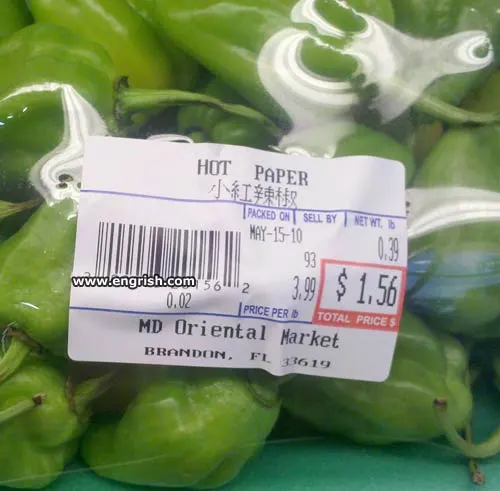Contrary to popular belief, speaking two languages doesn’t make you a translator. Sure, you could get the main point across and in doing so get what you want. But that logic doesn’t apply to written communication. Especially when it’s published.
These people seem to think that a few English lessons make them professional translators. Because knowing English better than everyone around you automatically makes you the expert and gives you authority on all matters. Not like anyone would know the difference.
We do. So here are a few examples of miserable translation failures it would benefit to learn from. Lesson: if you want to translate, consult a real professional.
Whet your appetite.

A French chick on a platter? They must have meant chicken cooked in a French style. But who knows, really? Customers expecting a French woman coquettishly lying on a platter will complain about false advertising if this isn’t made clear.
Beware of packaging.

Watch out! The paper packaging around these habanera peppers is hot! Brought to you straight off the printing press. If you act fast, you can get it while it’s still steaming. How did this get past quality control? Labels can be deceiving. Exercise caution.
No need.

In a twisted way, this is kind of poetic if you think about it. Too bad it’s not intentional. The need for a reminder to flush after doing your business is worrisome enough. “Withdrawing the need” is in its own category.
Too obtuse for words.

Ahhh. One set of letters can do quite a bit of damage, as you can see. This angel takes a different angle on life. Perhaps we should learn from her example. This is unfortunately a very common error among native English speakers. Sigh.
A cut above a regular menu.

We had to save this one for last. Where do we even begin? We can’t decide between the frog raised in man-power or the pig fertilizer. They must have meant frogs that weren’t captured from the wild. But we’d rather not know what’s in the pig fertilizer casserole. Better stick with a salad.
